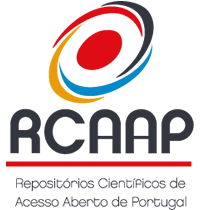Association between gut microbiome composition and pediatric obesity – a systematic review
DOI:
https://doi.org/10.48797/sl.2024.169Keywords:
PosterAbstract
Background: Obesity is one main 21st-century pandemic, emerging at younger ages and presenting several health problems and increasing risks of multiple diseases involving metabolic pathways related to inflammation (e.g., cardiovascular diseases, diabetes, and cancer risk). Recent data suggest that the microbiome is connected with obesity pathophysiology. Nonetheless, scarce information is available about gut microbiome and obesity in pediatric age. So, understanding the symbiotic relationship between the human organism and the intestinal microbiome can be crucial for addressing a possible therapeutic issue from early childhood. Objective: Verify the association between the intestinal microbiome and obesity in pediatric age. Methods: This systematic review was designed according to PRISMA. The search was carried out in October 2023, using PubMed and Scopus databases, with a peer-to-peer selection of articles. The choice was carried out in two phases, initially by title and abstract analysis and later by a full reading of the selected manuscripts, based on the inclusion criteria, namely “pediatric age (from birth to 18 years of age)”, “fecal microbiota or intestinal”, those that were clinical, cohort, case-control and cross-sectional studies, and that included children with obesity. Results: So, a total of 8 clinical studies and 2 observational studies were selected and included for this analysis. The selected studies show that gut bacterial communities are directly or indirectly related to obesity. Thus, childhood may be the critical period to implement specific microbiota interventions to prevent multifactorial diseases related to obesity. Papers analysis showed that some genera tended to be associated with an obesogenic profile in children, namely: Prevotella, Phascolarctobacterium, Paraprevotella, Bacillus, Dorea, Ruminococcus gnavus, Clostridium sensu stricto groups, Eubacterium halli group and Fusicatenibacter [1,2]. In this review, the Firmicutes phylum was shown to be in smaller quantities in obese children, with Bacteroidetes being associated with an obesogenic profile [3]. Conclusions: The results from these studies reflect microbiome differences between obese and normal-weight children, however further investigation is needed to clarify the importance of microbiome composition on obesity at pediatric age. Nonetheless, is important to implement as soon as possible diverse measures to minimize this obesity pandemic in pediatric age, like the implementation of regular physical activities and exercises [4], healthier and more sustainable diets and food literacy.References
1. Quiroga R, Nistal E, Estébanez B, Porras D, Juárez-Fernández M, Martínez-Flórez S, et al. Exercise training modulates the gut microbiota profile and impairs inflammatory signaling pathways in obese children. Exp Mol Med. 2020 Jul 1;52(7):1048–61.
2. Pastor-Villaescusa B, Plaza-Díaz J, Egea-Zorrilla A, Leis R, Bueno G, Hoyos R, et al. Evaluation of the gut microbiota after metformin intervention in children with obesity: A metagenomic study of a randomized controlled trial. Biomedicine and Pharmacotherapy. 2021 Feb 1;134.
3. Shin S, Cho KY. Altered Gut Microbiota and Shift in Bacteroidetes between Young Obese and Normal-Weight Korean Children: A Cross-Sectional Observational Study. Biomed Res Int. 2020;2020.
4. Bernhardsson, S., Boman, C., Lundqvist, S. et al. Implementation of physical activity on prescription for children with obesity in paediatric health care (IMPA): protocol for a feasibility and evaluation study using quantitative and qualitative methods. Pilot Feasibility Stud 8, 117 (2022).
Downloads
Published
How to Cite
Issue
Section
License
Copyright (c) 2024 Rafaela Nóbrega, João Soares Carrola, Carla Gonçalves

This work is licensed under a Creative Commons Attribution 4.0 International License.
In Scientific Letters, articles are published under a CC-BY license (Creative Commons Attribution 4.0 International License), the most open license available. The users can share (copy and redistribute the material in any medium or format) and adapt (remix, transform, and build upon the material for any purpose, even commercially), as long as they give appropriate credit, provide a link to the license, and indicate if changes were made (read the full text of the license terms and conditions of use).
The author is the owner of the copyright.









